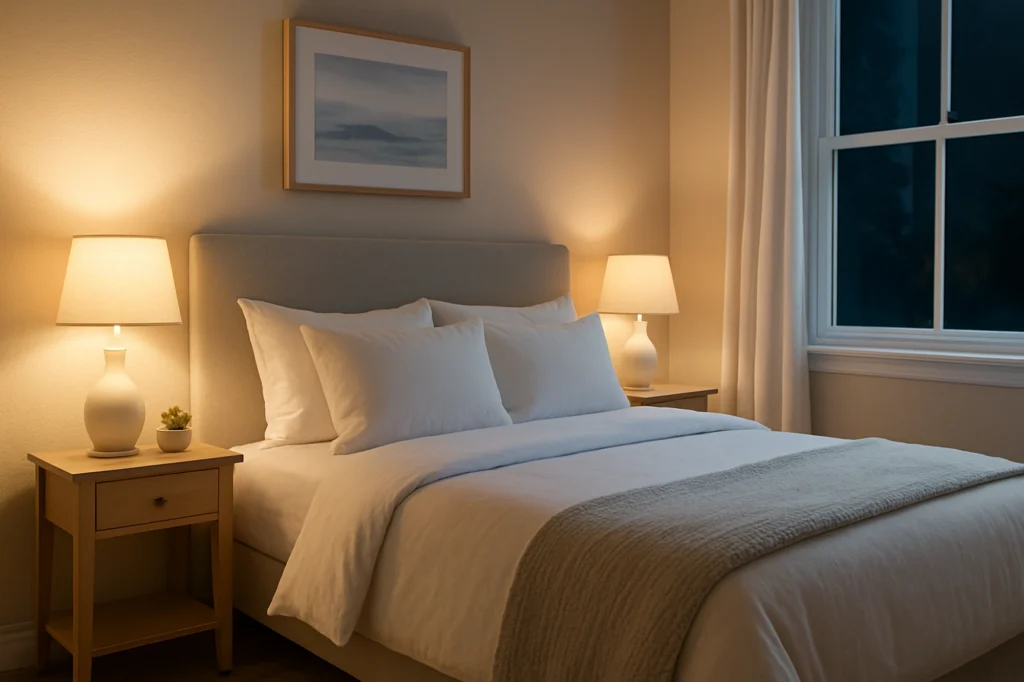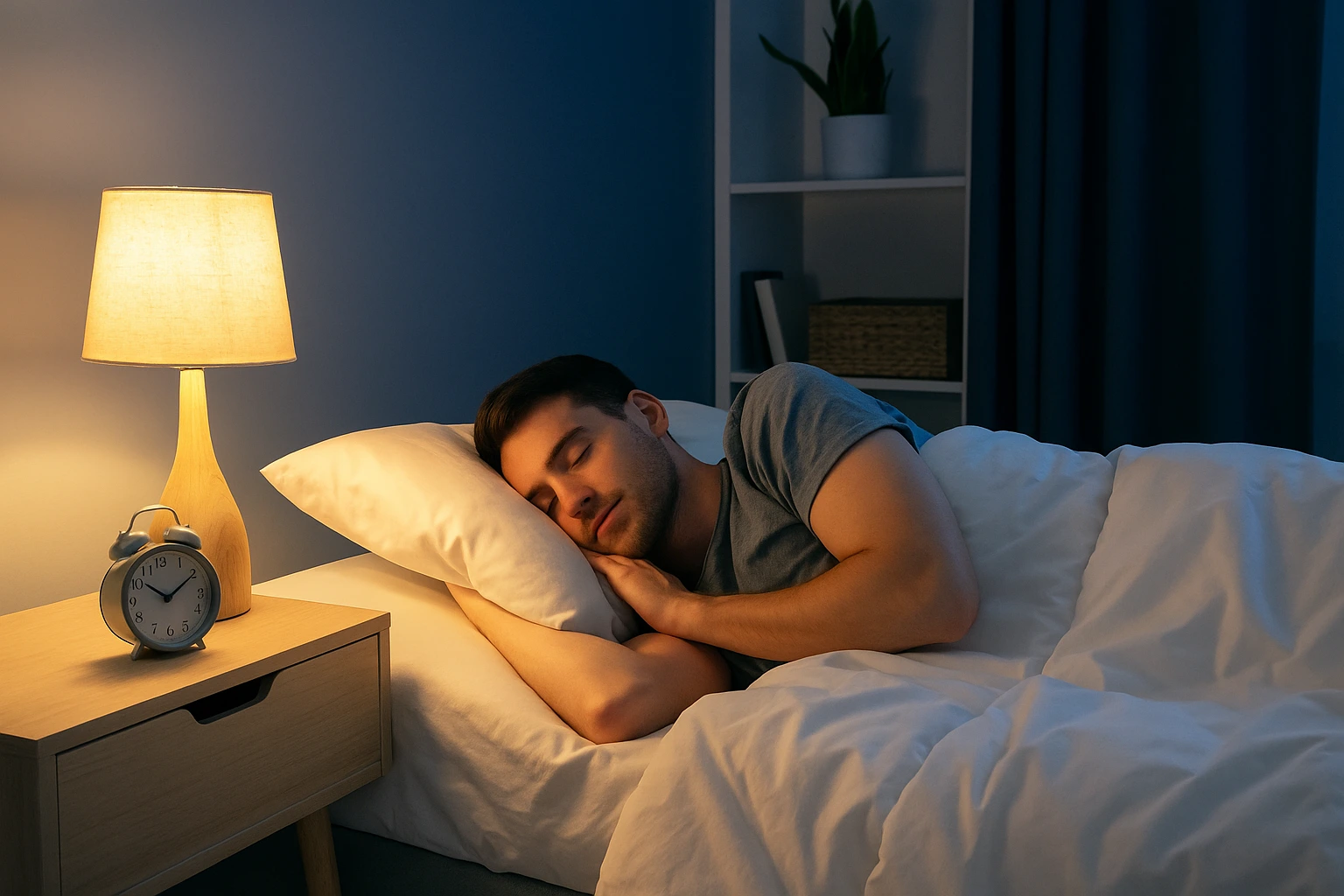Understanding the Importance of Sleep Hygiene
Good sleep doesn’t just happen—it’s built through consistent routines and a healthy environment. Sleep hygiene tips focus on the behaviors and surroundings that influence the quality of rest. By improving these factors, you can support deeper, more restorative sleep and better overall health.
Poor sleep habits, inconsistent bedtimes, and disruptive environments can make it harder to fall asleep or stay asleep. Over time, these issues affect mood, concentration, and long‑term wellness. Establishing healthy sleep practices is key to breaking this cycle.
Better Sleep Habits for Restful Nights
Developing better sleep habits can have a significant impact on how well you sleep. These include:
- Maintaining a consistent bedtime routine – Going to bed and waking up at the same time every day helps regulate your body’s internal clock.
- Limiting screen time before bed – Blue light from phones, tablets, and TVs can interfere with melatonin production, making it harder to fall asleep.
- Avoiding heavy meals and caffeine late in the day – These can disrupt your ability to relax and rest.
- Incorporating relaxing activities before bed – Gentle stretching, reading, or deep breathing can prepare your body for sleep.
These healthy sleep practices create a predictable rhythm that signals your body it’s time to wind down.
Sleep Environment Improvements
Your bedroom plays a critical role in the quality of your rest. Sleep environment improvements can help create the ideal conditions for uninterrupted sleep:
- Keep the room cool and dark – A slightly cooler temperature and blackout curtains can promote deeper sleep.
- Minimize noise – Use earplugs, white noise machines, or fans to block disruptive sounds.
- Invest in comfortable bedding – Supportive pillows and quality mattresses make a difference in long‑term comfort.
- Declutter the space – A tidy environment creates a calming atmosphere that promotes relaxation.
By making small adjustments, you can transform your bedroom into a restful sanctuary.

Bedtime Routine and Sleep Quality Enhancement
A bedtime routine is more than a series of actions before bed—it’s a signal to your brain and body that sleep is coming. Consistency is key. Over time, these cues help you fall asleep faster and stay asleep longer.
Incorporating sleep quality enhancement strategies like gentle lighting in the evening, avoiding stimulating conversations before bed, and practicing mindfulness can help transition your body into a restful state.
Healthy Sleep Practices for Long‑Term Benefits
Practicing healthy sleep practices daily can have a lasting effect on your well‑being. Better sleep improves memory, mood, and physical health. Over time, following these sleep hygiene tips can help prevent sleep disorders and enhance overall quality of life.
FAQ About Sleep Hygiene Tips
1. What are the most important sleep hygiene tips?
Consistent bedtimes, a relaxing bedtime routine, and creating a cool, dark, and quiet sleep environment are essential.
2. How can I improve my sleep environment?
Focus on sleep environment improvements such as blackout curtains, comfortable bedding, and noise reduction.
3. Does a bedtime routine really improve sleep?
Yes. A consistent bedtime routine signals your body to relax and helps regulate your internal clock.
4. How do healthy sleep practices enhance sleep quality?
Following healthy sleep practices supports better rest, reduces nighttime awakenings, and improves sleep quality enhancement.
5. Can poor sleep hygiene cause sleep disorders?
Over time, poor habits can contribute to chronic sleep problems, making better sleep habits essential for long‑term health.








